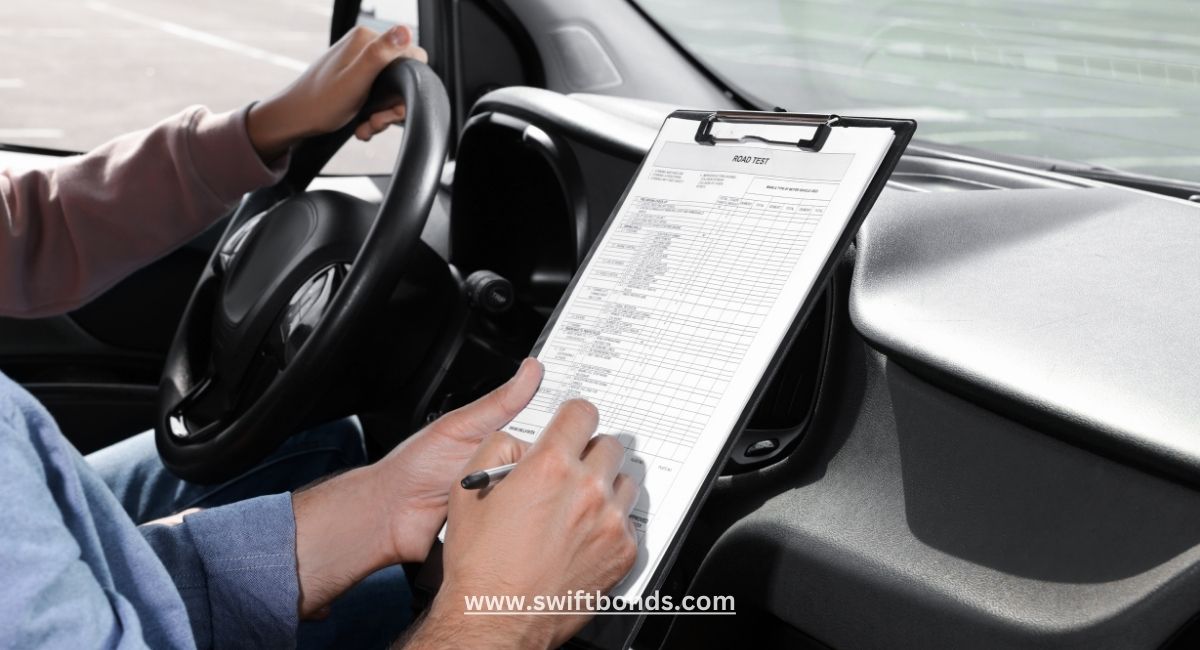Introduction
From our perspective, businesses and organizations offering CDL (Commercial Driver’s License) third-party testing services in Colorado must meet specific state requirements before conducting examinations. The Colorado - BOST CDL Third Party Testing ($20,000) Bond is a crucial part of this process, acting as a financial guarantee to ensure compliance with state regulations and protect both the public and the state from any misconduct or failure to meet testing standards.
This bond supports fair and reliable CDL testing, ensuring that drivers meet necessary safety and competency requirements. Without it, fraudulent practices could undermine the integrity of the commercial driver licensing process.

Why CDL Testing Providers Often Struggle with Bond Requirements
We’ve noticed that businesses seeking to become third-party CDL examiners often find bond requirements confusing and overwhelming. Some testing providers assume the bond is just another fee with no real function, while others mistakenly think it protects their business directly.
Here are some common misunderstandings:
- “This bond is an insurance policy for my business.”
- The bond protects the state and public, not the bondholder. If a testing provider violates CDL testing laws, the bond ensures that compensation is available to cover damages.
- “I have to pay $20,000 upfront.”
- The actual cost of the bond is a small percentage of the total amount, determined by credit history and financial standing.
- “Only large companies need this bond.”
- Any business, school, or independent third-party CDL testing provider must carry this bond to receive authorization from the state.
Swiftbonds Makes the Bonding Process Simple
Based on our experience, many businesses struggle with the bonding process, leading to delays and operational setbacks. At Swiftbonds, we specialize in fast approvals and competitive pricing to help businesses meet regulatory requirements without stress.

Why This Bond is Required for CDL Testing Providers
- Regulatory Compliance – The bond is a state-mandated requirement to ensure third-party testers follow CDL examination procedures and maintain accurate records.
- Consumer Protection – If a testing provider engages in fraud or negligence, the bond serves as financial protection for those affected.
- Industry Trust – Having the bond demonstrates credibility, making businesses more likely to gain approval from the Colorado Department of Revenue – Division of Motor Vehicles.
In addition to securing this bond, we help businesses with related bonds, such as the Town of Firestone, CO - Refuse Hauler ($25,000) Bond and the Town of Winter Park, CO - Right of Way Permit Bond.
Steps to Obtain a Colorado CDL Third Party Testing Bond
What we’ve discovered is that securing this bond is a quick and easy process when working with an experienced provider like Swiftbonds:
- Verify Requirements – Check with the Colorado Division of Motor Vehicles to confirm licensing and bonding requirements.
- Submit an Application – Provide basic details about your business, finances, and CDL testing services.
- Receive a Quote – The bond premium is determined by credit score, business experience, and financial strength.
- Purchase the Bond – Once approved, the bond is issued and must be filed with the state.
- Maintain Compliance – Some bonds require annual renewal, so tracking expiration dates is important.

What Happens If You Operate Without This Bond?
In our observation, failure to obtain the required CDL Third Party Testing Bond can lead to serious penalties:
- License Denial or Suspension – Third-party testers cannot legally operate without the required bond.
- Financial Penalties – The state may impose fines or legal actions against unbonded businesses.
- Loss of Business Opportunities – Companies without proper bonding may lose contracts with training programs, schools, and employers.
- Legal Liability – If a provider issues fraudulent CDL certifications, they may be held personally responsible for damages.
Why CDL Testing Providers Trust Swiftbonds
We’ve learned that businesses want a reliable, fast, and cost-effective bonding solution. At Swiftbonds, we provide easy approvals, competitive rates, and dedicated support to help businesses stay compliant.
What We Offer:
- Fast Processing – Most bonds are approved within 24 hours.
- Affordable Rates – Competitive pricing based on financial standing and risk level.
- Easy Online Application – No complex paperwork or lengthy waiting periods.
- Expert Guidance – We assist with other required bonds, including the Town of Firestone, CO - Refuse Hauler ($25,000) Bond and the Town of Winter Park, CO - Right of Way Permit Bond.

Conclusion
We’ve come to appreciate that the Colorado - BOST CDL Third Party Testing ($20,000) Bond is a key requirement for businesses conducting CDL exams, ensuring compliance, accuracy, and public safety.
At Swiftbonds, we simplify the bonding process, making it fast, affordable, and hassle-free. Whether you need this bond, the Town of Firestone, CO - Refuse Hauler ($25,000) Bond, or the Town of Winter Park, CO - Right of Way Permit Bond, we are here to help.
Apply today and stay compliant with Colorado’s CDL testing requirements!
Frequently Asked Questions
Who Needs a CDL Third Party Testing Bond?
We’ve often noticed that any individual or business offering CDL testing services in Colorado must secure this bond before receiving approval from the state.
How Much Does the Bond Cost?
We’ve found that bond costs vary based on credit history and financial standing. Most providers pay between 1% and 5% of the total bond amount.
How Fast Can I Get Approved?
We’ve discovered that most applicants receive approval within 24 hours, allowing them to submit bond documentation quickly.
What If a Claim Is Filed Against My Bond?
We’ve observed that if a testing provider fails to follow CDL exam procedures or engages in misconduct, a claim can be filed. If valid, the surety company will cover damages, but the provider must reimburse the surety for the payout.


